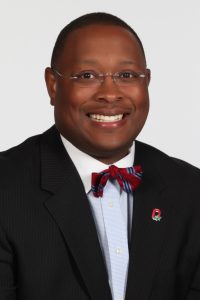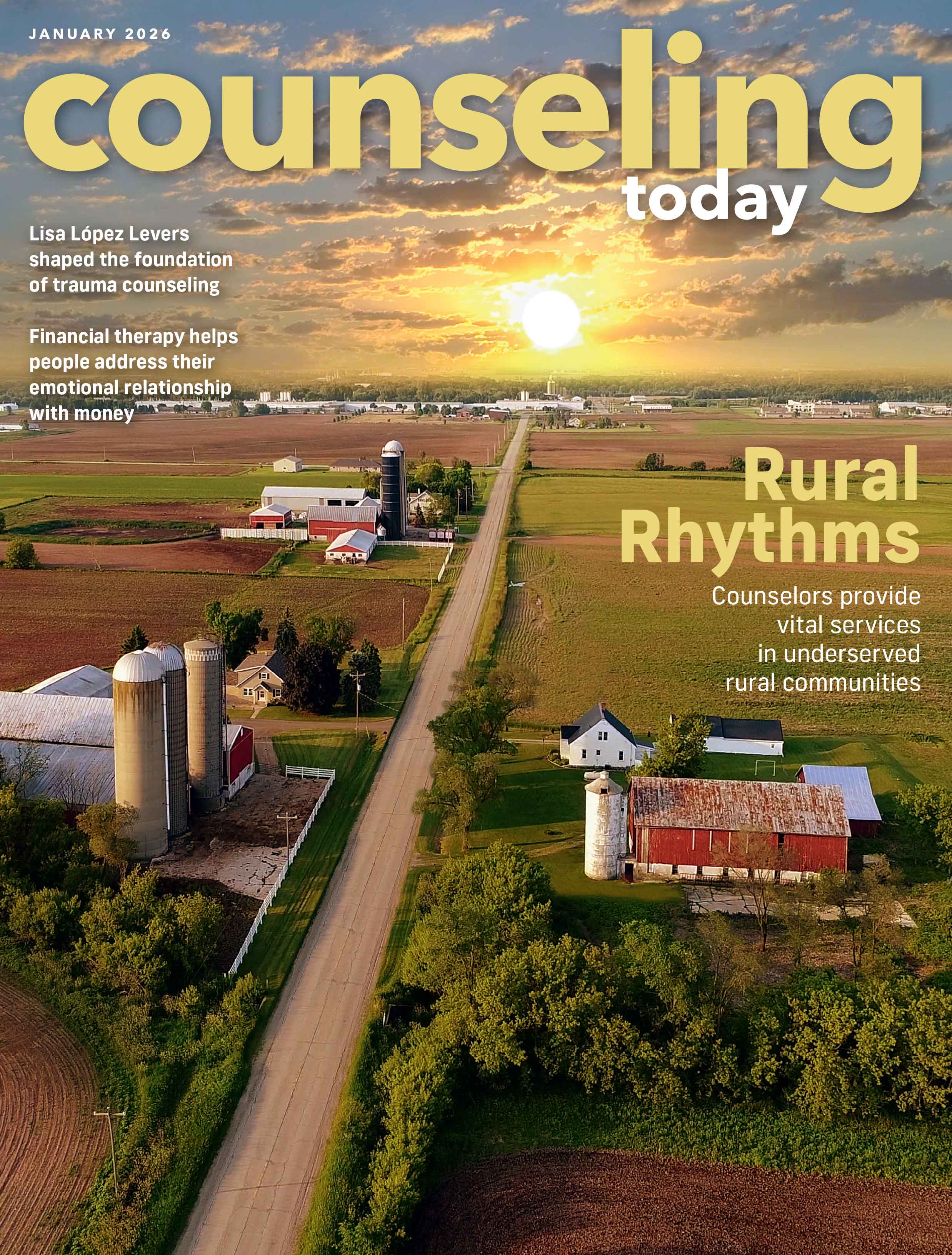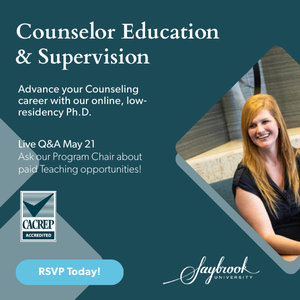Explore Counseling Today Articles
Racial bias in gifted and talented programs
Sep 26, 2023, 12:00 PM
Title :
Racial bias in gifted and talented programs
By line :
Scott Sleek
Flaws in testing and racial biases among teachers and school counselors are some of the reasons many Black boys are left out of advanced learning programs and misdirected into special education, according to the article “Inequitable representation of Black boys in gifted and talented education, Advanced Placement, and special education” published in the October issue of the Journal of Multicultural Counseling and Development (JMCD). The report is part of a special issue of the journal, “Understanding the Black Male Experience: Recommendations for Clinical, Community, and School Settings,” guest edited by Isaac Burt, Erik M. Hines and.
 In the article,, a distinguished professor of education and human ecology at Ohio State University (OSU), and her colleagues describe why teachers too rarely refer Black boys to gifted and talented education programs and too often send them to special education. Educators often develop erroneous and harmful perceptions of Black boys as lazy, unruly and apathetic, the authors note. Furthermore, tests often lack cultural context for Black students and favor those who excel at pen-and-paper exams rather than oral expression, they say.
In the article,, a distinguished professor of education and human ecology at Ohio State University (OSU), and her colleagues describe why teachers too rarely refer Black boys to gifted and talented education programs and too often send them to special education. Educators often develop erroneous and harmful perceptions of Black boys as lazy, unruly and apathetic, the authors note. Furthermore, tests often lack cultural context for Black students and favor those who excel at pen-and-paper exams rather than oral expression, they say.
 The co-authors include Moore, distinguished professor of urban education and inaugural executive director of the Todd Anthony Bell National Resource Center on the African American Male at OSU; Tanya J. Middleton, a clinical assistant professor of counselor education at OSU; and Hines, a professor of counseling at George Mason University.
Counseling Today recently spoke with Ford and Moore about their JMCD article and the issue of racial bias in academic placement. (This interview has been edited for clarity and length.)
The co-authors include Moore, distinguished professor of urban education and inaugural executive director of the Todd Anthony Bell National Resource Center on the African American Male at OSU; Tanya J. Middleton, a clinical assistant professor of counselor education at OSU; and Hines, a professor of counseling at George Mason University.
Counseling Today recently spoke with Ford and Moore about their JMCD article and the issue of racial bias in academic placement. (This interview has been edited for clarity and length.)
Scott Sleek is a freelance writer and editor in Silver Spring, Maryland. He specializes in content related to social and behavioral sciences and clinical care.
Opinions expressed and statements made in articles appearing on CT Online should not be assumed to represent the opinions of the editors or policies of the American Counseling Association.
 In the article,, a distinguished professor of education and human ecology at Ohio State University (OSU), and her colleagues describe why teachers too rarely refer Black boys to gifted and talented education programs and too often send them to special education. Educators often develop erroneous and harmful perceptions of Black boys as lazy, unruly and apathetic, the authors note. Furthermore, tests often lack cultural context for Black students and favor those who excel at pen-and-paper exams rather than oral expression, they say.
In the article,, a distinguished professor of education and human ecology at Ohio State University (OSU), and her colleagues describe why teachers too rarely refer Black boys to gifted and talented education programs and too often send them to special education. Educators often develop erroneous and harmful perceptions of Black boys as lazy, unruly and apathetic, the authors note. Furthermore, tests often lack cultural context for Black students and favor those who excel at pen-and-paper exams rather than oral expression, they say.
 The co-authors include Moore, distinguished professor of urban education and inaugural executive director of the Todd Anthony Bell National Resource Center on the African American Male at OSU; Tanya J. Middleton, a clinical assistant professor of counselor education at OSU; and Hines, a professor of counseling at George Mason University.
Counseling Today recently spoke with Ford and Moore about their JMCD article and the issue of racial bias in academic placement. (This interview has been edited for clarity and length.)
The co-authors include Moore, distinguished professor of urban education and inaugural executive director of the Todd Anthony Bell National Resource Center on the African American Male at OSU; Tanya J. Middleton, a clinical assistant professor of counselor education at OSU; and Hines, a professor of counseling at George Mason University.
Counseling Today recently spoke with Ford and Moore about their JMCD article and the issue of racial bias in academic placement. (This interview has been edited for clarity and length.)
////
What motivated you to write this JMCD article?
Ford: In 2023, racism is still a problem, anti-Blackness is a problem, inequity is pervasive, and underrepresentation of Black boys in gifted and talented programs is a problem. I grew up believing in the United Negro College Fund, whose mantra is: “A mind is a terrible thing to waste.” In the article, we also talk about how a mind is a terrible thing to erase. And that’s why we want more Black boys in gifted and talented education, getting the services they deserve and need. Moore: It was an opportunity to integrate the gifted education literature with the multicultural counseling literature. These combinations are not very common in the counseling literature. Generally speaking, Black young men and boys occupy a distinctive space in American society. Too often this group is seen as a part of a group rather than the individual. There are inescapable experiences, regardless of whether your family comes from an affluent community or from humble beginnings. You can look in any school district in America, and Black men will be grossly underrepresented in gifted and talented programs or advanced academic programs. But they will be overrepresented in special education. Ford: Black boys make up 9% of our school students, and they make up only 3.5% of students in gifted and talented education. So they are the most underrepresented of any group. We need to keep highlighting this fact, not just to teachers but to school counselors as well. When students are disengaged because they’re not challenged, then they become an underachiever, and it contributes to this overwhelming achievement gap.What are the most critical points that you would like people to take away from the article?
Ford: We must address test bias and use alternative methods of testing, evaluating and assessing Black boys. In this article, for example, we talk about nonverbal measures and nonverbal subscales. We must also stop placing our Black boys in special education because when you get services that you don’t need, there’s nothing special about special education. It is imperative that educators be careful and avoid racial bias when placing Black children in special education programs. And then finally, culture matters and representation matters. We need to be culturally responsive and antiracist, and we need more minoritized professionals in our schools. Moore: Broadly speaking, we need schools that adapt to students, rather than forcing students to adapt to schools. One of the things that we’ve written extensively about is deficit thinking and how it often becomes self-fulfilling. When a student has perceptions that the teacher doesn’t believe in their academic ability, it tends to have negative effects on their educational outcomes. It’s important that teachers communicate accurately and recognize that some communication styles convey to some students that they’re incapable. Another issue is representation. When Black students enter gifted programs, they frequently opt out or want to get out of these advanced academic programs because there isn’t representation that is reflective of their experience or of people who look like them. In turn, they are sometimes asked to speak on subject matters that may be viewed as speaking on behalf of the group, and we know that creates anxiety, which then impacts performance.What role do counselors play in working toward solutions for these issues?
Moore: School counselors play a critical role in students taking advanced academic courses. If the counselor only sees deficits, it will play out in how they consult and collaborate with teachers in helping students make decisions, or in how they make recommendations for the students to enter certain academic courses. So, it’s important that school counselors interrogate any deficit thinking that they may have about an individual. And sometimes the deficit thinking might be who their parents are or where they live. And we make broad assumptions. Fundamentally, I believe that great minds come from every ZIP code. The other way counselors can help is with social, personal issues. Often, when students leave their comfort zone — and that might be friends or representation of their racial group or gender — and they enter a domain where there’s no one to draw inference from, it creates anxiety. So school counselors can help provide social emotional support. They may also need to help the student’s parents understand the significance of advanced academic curriculum and what the benefits are.What are some problems associated with the current way we test for advanced academic programs?
Ford: Tests are biased, and in our article, we discuss two reasons for this. The first issue is the verbal loading of standardized achievement tests. The tests require an extensive vocabulary, and it does not take into consideration how Black individuals speak. We speak mainstream English, but the majority of us also speak Black English, which is a language, not a dialect. Verbal loading means you have to have a certain vocabulary. You have to phrase things in a certain way or know certain words. And that is problematic. The second issue is the cultural loading, which means the test items and correct responses are based on the culture of upper-income white people. These two issues can be seen in the testing question “How are work and play alike?” We have to consider why the person writing this test chose the terms “work” and “play” and how others may interpret them. Some Black children, for example, may say, “Well, they both have four letters.” Although that’s true, they would get zero points. Instead, they may be expected to say something like, “They’re both something that you enjoy.” But this isn’t true for everyone. Do you think that sanitation workers dealing with the smell of your trash go home talking about, “Oh, I just love my job”? No. So tests are linguistically biased against Black populations and the rest of minoritized groups. The underreferral of Black boys to gifted and talented education and the linguistically and culturally loaded tests are a double whammy that denies our Black boys opportunities to be challenged and reach their full potential.////
Watch the entire interview with and at Journal of Multicultural Counseling and Development Special Issue - Authors Interview - YouTube.Scott Sleek is a freelance writer and editor in Silver Spring, Maryland. He specializes in content related to social and behavioral sciences and clinical care.
Opinions expressed and statements made in articles appearing on CT Online should not be assumed to represent the opinions of the editors or policies of the American Counseling Association.
Department :
Categories :
- BIPOC
- Cultural Identities, Multiculturalism & Diversity
Tags :
audiences :
Contributors
Search CT Articles
Filter CT Articles
Current Issue
Sign Up for Updates
Keep up to date on the latest in counseling practice. Sign up to receive email updates from Counseling Today.



